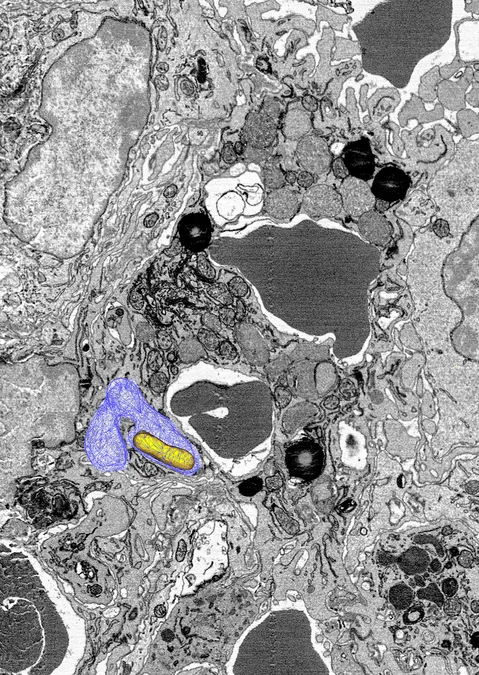
Unmasking Salmonella: How This Sneaky Pathogen Outsmarts Your Immune System
2025-05-19
Author: Michael
In a surprising twist in the battle between our immune system and pathogens, researchers from the University of Basel have uncovered how Salmonella bacteria cleverly exploit iron from immune cells to thrive. While our body instinctively restricts iron to starve off invaders, it turns out Salmonella has a trick up its sleeve.
Iron is a vital nutrient for all organisms, and its scarcity often halts bacterial growth. Immune defenses typically work by limiting nutrient access, effectively preventing infections from spreading. However, Professor Dirk Bumann and his team at the Biozentrum revealed that Salmonella can easily undermine this strategy.
Their recent study, published in Cell Host & Microbe, shows that Salmonella specifically seeks out iron-rich immune cells called macrophages. These robust defenders normally fight off bacterial threats by expelling iron from their environments, but Salmonella exploits these spots to replicate uncontested.
The Clever Escape of Salmonella
Targeting the iron-rich regions within macrophages, particularly in the spleen, where old red blood cells are broken down, Salmonella finds a plentiful resource. Red blood cells are laden with iron, creating a fertile ground for the bacteria. The researchers found that while the immune system pumps out excess iron, enough residual iron remains to facilitate Salmonella's growth.
"We were taken aback by how unaffected the Salmonella population was by iron deprivation," says Bumann. Their single-cell analyses revealed two distinct Salmonella populations: one struggling in iron-poor regions and another thriving in iron-rich vesicles.
Innovative Survival Tactics
Bumann explains that even though the NRAMP1 transporter efficiently recycles iron, the leftover amounts in these vesicles remain significantly high, allowing Salmonella to flourish. This adaptability gives Salmonella a competitive edge and is key to its infectious prowess.
The diversity within Salmonella populations is critical, showcasing their ability to navigate and thrive amid sophisticated immune defenses. Bumann underscores the necessity of single-cell analysis in understanding these interactions, stating, "Only by deciphering the survival strategies of pathogens can we develop effective countermeasures against infections."
Implications for Future Research
The implications of these findings are vast, shedding light on host-pathogen dynamics and the ongoing struggle between our immune systems and resilient pathogens. Understanding how Salmonella adapts to evade immune attacks is paramount in devising new strategies to combat infections effectively.









 Brasil (PT)
Brasil (PT)
 Canada (EN)
Canada (EN)
 Chile (ES)
Chile (ES)
 Česko (CS)
Česko (CS)
 대한민국 (KO)
대한민국 (KO)
 España (ES)
España (ES)
 France (FR)
France (FR)
 Hong Kong (EN)
Hong Kong (EN)
 Italia (IT)
Italia (IT)
 日本 (JA)
日本 (JA)
 Magyarország (HU)
Magyarország (HU)
 Norge (NO)
Norge (NO)
 Polska (PL)
Polska (PL)
 Schweiz (DE)
Schweiz (DE)
 Singapore (EN)
Singapore (EN)
 Sverige (SV)
Sverige (SV)
 Suomi (FI)
Suomi (FI)
 Türkiye (TR)
Türkiye (TR)
 الإمارات العربية المتحدة (AR)
الإمارات العربية المتحدة (AR)